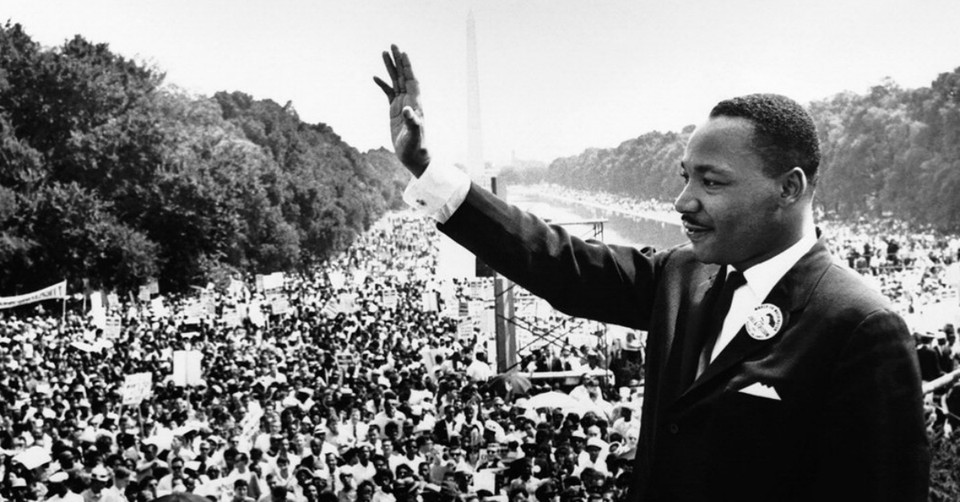Martin Luther King, Jr.: How Faith Shaped the Civil Rights Movement

Beginning in 1986, the third Monday in January has been set aside to honor and remember Dr. Martin Luther King, Jr., the minister and civil rights leader who was instrumental in influencing race relations and equality here in America. This year, on January 15, we celebrate the 89th birthday of the man who continues to be remembered as one of the most prominent and inspirational leaders in history. His messages of equality, hope and love remain relevant today and, as Christians, we would be wise to take some time to remember Dr. King whose life demonstrated in a dramatic way Jesus’ commandment to “love our neighbors as ourselves.”
While Dr. King is well-known for being a civil rights activist, he was first a minister and his faith served as the foundation for his commitment to achieving social justice for all. He often quoted God’s Word in his speeches and his views were firmly rooted in Scripture. As we celebrate the Martin Luther King, Jr. holiday, let’s take a look at some of his best-known speeches and sermons and the Bible passages upon which they were based.
In 1957, Dr. King preached a sermon based on a familiar passage from the Sermon on the Mount. In Matthew 5:43-45 NLT Jesus says, “You have heard the law that says, ‘Love your neighbor’ and hate your enemy. But I say, love your enemies! Pray for those who persecute you!”
At the time, Dr. King had come under criticism from fellow activists who disagreed with his patient and non-violent approach. Reflecting on Jesus’ commands, Dr. King said, “… it is significant that he does not say, ‘Like your enemy.’ There are a lot of people that I find it difficult to like. I don’t like what they do to me … but Jesus says love them. And love is greater than like.” Clearly Dr. King was reinforcing his commitment to living the kind of life Jesus would have him live, despite difficult circumstances and opposition.
Dr. King cited multiple passages of Scripture in his famous “I Have a Dream” speech. He quoted Isaiah 40:4-5 to express his dream for mankind saying, “I have a dream that one day every valley shall be exalted, and every hill and mountain shall be made low, the rough places will be made plain, and the crooked places will be made straight and the glory of the Lord shall be revealed and all flesh shall see it together. This is our hope... With this faith we will be able to transform the jangling discords of our nation into a beautiful symphony of brotherhood.”
In his final “I’ve Been to the Mountain Top” speech, Dr. King compared himself to Moses who saw the land God had promised the Israelites but knew he wouldn’t enter it (Numbers 27:12 and Deuteronomy 34.) Dr. King said, “He’s allowed me to go up to the mountain and I’ve looked over. And I’ve seen the Promised Land. I may not get there with you. But I want you to know tonight, that we, as a people, will get to the promised land!”
The significance of these few lines cannot be overstated – Dr. King was killed by an assassin’s bullet the very next day.
These examples are but a few that demonstrate how Dr. King’s faith and his passion for justice and equality were inextricably linked. It was impossible for him to live for one without the other.
Dr. King’s faith was personal. He not only believed in the truth of God’s Word, he did what the Word tells all of us to do. He took action no matter the cost. Dr. King’s life is a lesson for us today as we remember what Galatians 3:28 ESV tells us: “There is neither Jew nor Greek, there is neither slave nor free, there is no male and female, for you are all one in Christ Jesus.”
As we celebrate and remember the man, let’s renew our own commitment to live and treat others as Christ would have us do. Let’s not allow our differences to separate us. Rather let’s show appreciation and respect for everyone. And, invite your friends and loved ones to do the same. Send them a quick free, shareable Ecard in honor of Martin Luther King Jr. or share this article with them on social media. And, don’t forget to add a personal note, inviting them to join us as we renew our commitment to Jesus’ commandment to “love our neighbors as ourselves.”
This post originally appeared on DaySpring and was republished with permission. For more articles like this, check out their devotional library.
Photo credit: ©WikimediaCommons.com
Originally published January 11, 2024.







